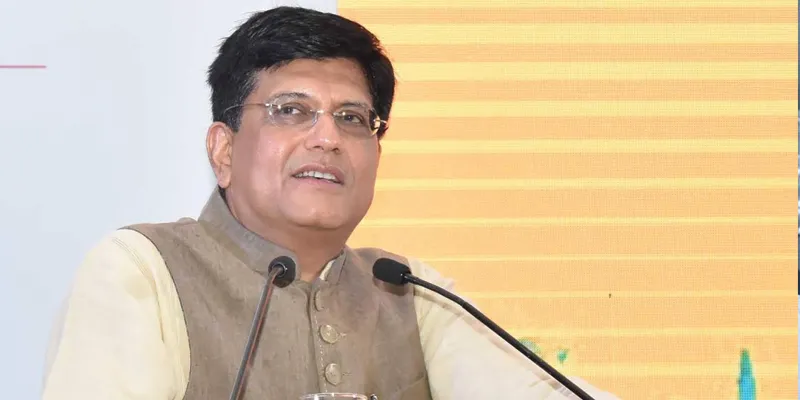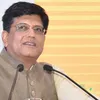Commerce Minister Piyush Goyal meets industry leaders, foreign ministers at WEF
Piyush Goyal also discussed ways for accelerating investments in Indian Railways during a roundtable session with industry leaders on the sidelines of WEF.
Union Commerce and Industry Minister Piyush Goyal on Wednesday discussed issues relating to bilateral trade and investment with South Korean Trade Minister Yoo Myung-hi, as he met several industry leaders and foreign ministers at WEF 2020 in Davos.
Goyal, who also holds the railways' portfolio, discussed ways for accelerating investments in Indian Railways during a roundtable session with industry leaders on the sidelines of WEF.
Goyal highlighted the focus on innovation and modernisation in Railways, paving the way for new and higher investment opportunities.

Separately, the minister held several bilateral meetings including with Carlos Brito, Global CEO of Anheuser Busch InBev, and discussed the various initiatives taken by the Indian Government to enhance Ease of Doing Business.
He also met Alfred F Kelly Jr, Chief Executive Officer and Chairman of Visa, and Alan Hope, CEO of Unilever.
With the South Korean minister, Goyal discussed India's concerns to further strengthen bilateral cooperation in trade and investment between the two nations, he tweeted.
Apart from Goyal, Actor Deepika Padukone and Spiritual Guru Sadhguru are also attending this year's forum.
From India, besides Deepika, over 100 CEOs, as well as political leaders including union ministers and chief ministers will take part. Underpinning the meeting will be the Davos Manifesto 2020, a document that builds on the original Davos Manifesto of 1973, which set out for the first time the stakeholder concept that businesses should serve the interests of all society rather than simply their shareholders.
The Davos Manifesto 2020 provides a vision for stakeholder capitalism that touches on a range of important issues of our time, including fair taxation, zero tolerance for corruption, executive pay, and respect for human rights.
"Business has now to fully embrace stakeholder capitalism, which means not only maximising profits, but use their capabilities and resources in cooperation with governments and civil society to address the key issues of this decade. They have to actively contribute to a more cohesive and sustainable world," said Klaus Schwab, WEF Founder and Executive Chairman.
This year's programme focusses on achieving maximum impact on the Forum's platform for public-private cooperation, across six core areas of activity: ecology, economy, society, industry, technology, and geopolitics.
(Disclaimer: Additional background information has been added to this PTI copy for context)
(Edited by Suman Singh)









